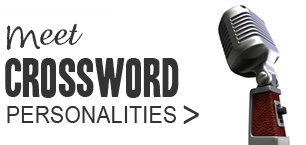
The standard advice for punctuation in cryptic clues is "Ignore it". That is good advice in most cases, like these -
FT13474 (Mudd): As something painful hurt, I came to be treated (9) RHEUMATIC
An anagram of (hurt I came). The comma has no role in the cryptic reading.
Guardian 24802 (Araucaria): No time to ask "Why's head visible?" (2,4) IN VIEW
INVITE (ask) – T (time), W (head of 'why'). The quotes have no role in the cryptic reading.
Times 24300: Horse-and-buggy kept inside — that's sick (7) MACABRE
MARE (horse) around CAB (buggy). The hyphens have no role in the cryptic reading.
The same clues are easier to solve without the distractions of surface punctuation:
As something painful hurt I came to be treated (9)
No time to ask why's head visible (2,4)
Horse and buggy kept inside that's sick (7)
Most of the time, as above, the role of punctuation is only to create a meaningful, misleading surface for the clue. For solving, the punctuation can safely be ignored.
There are some exceptions to that rule. Let's have a closer look at them.
The Apostrophe
The apostrophe requires careful consideration. If the apostrophe has been used to drop letters in the clue, this indicates that corresponding letters are to be dropped in the answer.
Guardian 24974 (Chifonie): Confirm or 'esitate (4) AVER
HAVER (hesitate), with the H dropped as indicated by the apostrophe.
The apostrophe can be used to disguise a container indicator:
Times Jumbo 884: Fire’s hot inside cabin (5) SHACK
SACK (fire) has H (hot) inside. With the aid of the punctuation, 'is' converts to 'has' in the cryptic reading.
For more uses of the apostrophe, read The Significance of ’s in Cryptic Clues.
The Special Role Of ? and !
? and ! generally indicate that something unusual is going on in the clue.
? can mean that:
- the clue is a cryptic definition if the '?' is placed at the end of the clue
FT 13475 (Bradman): Two in chemical water? (9) SUBSCRIPT
A cd; '2' is a subscript in the chemical symbol for water, H2O. - the part of the clue preceding the '?' requires some lateral thinking
Guardian 25103 (Paul): Poet writing about primo donno? (4) OVID
'prima donna' is DIVA, so 'primo donno' is DIVO. Turn it about and you get OVID, the Roman poet. The question mark nudges the solver to think of 'primo donno' from an unconventional perspective. - the part of the clue preceding the '?' is a definition by example
Times 24382: Possessive type's first son? (5) THEIR
T[ype] HEIR (son). The question mark is a hint to look for an example - not a synonym – of 'son'. - the setter is taking a small liberty with the accepted rules of fairness and wants you to let it pass
Guardian 24925 (Orlando): Bound to believe in pronouncement? (7) TRUSSED
TRUSSED sounds like TRUST (believe). We might question the correctness of 'in pronouncement' as homophone indicator (it isn't the same as 'in pronunciation') but we accept it because of the '?'.
! usually signals an &Lit clue or an innovative definition.
FT13306 (Cinephile): One entering theatre? Not these days! (5,3) STONE AGE
ONE in STAGE (theatre)
"Not these days" is not a dictionary definition of STONE AGE, therefore the exclamation mark.
But don't rely much on finding special meaning with these punctuation marks either.
Sometimes '?' and '!' too, like other punctuation marks, only help the surface and imply nothing unusual. Sometimes a trailing exclamation mark is just a case of the setter projecting the clue as cleverer than it is! (er, cancel that last exclamation mark)
In the next few clues, '?' and '!' can be ignored.
Times 24317: Might salesman, holding now, finally ring back? (5) POWER
REP (salesman) around [no]W O (ring), all reversed. '?' has no role in the cryptic reading.
Times Sunday 4351: Shell about to strike — good shot! (8) CARAPACE
CA (about) RAP (strike) ACE (good shot). '!' has no role in the cryptic reading.
FT 13475 (Bradman): Drunken spree? One needs skill, intervening (9) BARTENDER
ART (skill) in BENDER (drunken spree) &Lit. '?' has no role in the cryptic reading. Also note that though this is an &Lit clue, there is no '!' at the end.
Guardian 25070 (Enigmatist): "Drifting life forms look to zap!" (News, in shock) (11) ZOOPLANKTON
(LOOK TO ZAP + N + N)*. None of the punctuation marks – quotes or '!' or the brackets – have any role in the cryptic reading.
When punctuation makes all the difference
Nothing is true always.
Hyphens and dashes are generally just fillers, but notice the use of '-' in the next clue:
FT 13385 (Orense): Shanghai duck-eating lizard (7) DRAGOON
DRAGON (lizard) around O (duck)
The hyphen must be taken into the parsing here: if we read "duck-eating lizard" as "duck eating lizard", we would have O around DRAGON.
The ellipsis is another example that in most cases has no impact on the cryptic reading, but sometimes it indicates a cryptic relation between two clues. Read Ellipsis-linked clues for more.
In the next three clues, punctuation marks are of critical importance. Try solving them! (Answers tomorrow)
Guardian 25073 (Paul): Dude — the ride ends here (3,8) B__ T_______
Times 24281: Direct, at first not direct (7) C_____D
Guardian 24167 (Paul): Negotiate track up mountain, perhaps (11,4) P__________ M___
In Closing
We've seen in this article wide-ranging use of punctuation in clues: some in which punctuation leapt out to catch the eye but had no role in the wordplay, others in which punctuation appeared irrelevant but was far from being so.
The rule of thumb is to ignore punctuation other than '?' and '!', but there are clever setters out there to subvert such rules. '?' and '!' can be as misleading as the rest of the punctuation, and the rest can be as meaningful as '?' and '!' are supposed to be.
Don't let punctuation distract you, but don't lose sight of it entirely.
Solve These
A few punctuated clues for you to solve and enjoy.
Guardian 25098 (Puck): Turn from pet? A tortoise doing somersault! (6) R_____
FT 13403 (Loroso): Cold rain, cloud, wind (9) U_______L
Guardian 24839 (Boatman): Dead-end career next? (5) L___R
[This post was written on a suggestion by David Hampton. Thanks David.]
Related Posts:
If you wish to keep track of further articles on Crossword Unclued, you can subscribe to it in a reader via RSS Feed. You can also subscribe by email and have articles delivered to your inbox, or follow me on twitter to get notified of new links.








 Follow on Twitter
Follow on Twitter Join us on Facebook
Join us on Facebook Get RSS
Get RSS

31 comments
ROTATE [T]
UNCORDIAL (RAINCLOUD)*
{LATE}{R}
I am a bit confused about the use of WIND as an anagram indicator. Isn't UNWIND the appropriate indicator, though it may not gel well with the surface here?
To sum up, to see or not to see, that is the question ? !
BUS –TER+ MINUS
COMMA-N-D
PUNCTUATION MARK (Self reference !)
ROTATE <-(T)
UNCORDIAL*
LATE-R
Appreciation by a circle between four Us ? (3)
As always, very fascinating! My guesses:
Bus Terminus [Buster Minus]
Command [Comma, ND]
Punctuation Mark
Really neat clues! Gives a different high :)
Next set:
Rattle? [Not sure - "A Turtle"-u]
Uncordial ["wind" rain & cloud]
Later [Late+r]
Didn't get the significance of punctuation in the three above (I suppose there wasn't any?)
If you have more punctuation clues, do tweet them. I'm quite fascinated!
g
How about hyphenated words? Hyphens are also punctuations? Invariably, hyphens are not counted in the number of letters. Many compilers confuse the solvers by dropping the hyphens.
Any comments?
Raju Umamaheswar
Another great article, many thanks Schuchi. I love your thoroughness in articulating all the angles - "the setter is taking a small liberty with the accepted rules of fairness" was a new one to me
Hi Raju, The article does cover the use of hyphens in clues. It shows one case in which the hyphen is misleading and should be ignored, another in which it must be included in the cryptic reading. It is wisest, I think, to keep both possibilities in mind.
Invariably, hyphens are not counted in the number of letters. Many compilers confuse the solvers by dropping the hyphens.
Are you talking about hyphens in the solution? These are indicated with hyphens in the word length; for example, HALF-TIME SCORE the word length will be (4-4,5). With some words both the hyphenated and non-hyphenated versions are acceptable - the modern tendency is to do away with hyphenated spellings. To me it seems all right if the setter chooses either way to indicate length, as long as the setter's way is listed in the standard dictionaries.
Hi dram
Thank you!
Others who have posted the answers: Great solving! I'm holding on to your comments a little while longer. Will publish them tomorrow.
Gauri: Look for a hidden word in the tortoise clue!
A few more where you can't ignore the punctuation:
Dispute result in test that ends this? (8,4)
European language – found around part of UK (6)
Settlement: unknown figure (6
QUESTION MARK
DA(NI)SH
COLON-Y
Hello Big Dave
Thanks for the nice clues. The second one is specially tricky. Are they from the Daily Telegraph?
No takers yet to my gambit ?
Hi shyam, Kishore and litterateuse: *applause*
@shyam: 'wind' can mean twist or turn. That fits well as anagram indicator, I think.
@litterateuse: You're right - no significance of punctuation in the last set of clues, as a counterpoint to the previous set.
@Kishore: I am wowed by your clue!
"The question mark nudges the solver towards thinking of an unexpected meaning for 'slip'." I don't think this is right - it's because "slip" is an example of a fielder rather than a definition.
@Anonymous: Pardon the slip, I'll replace the clue with a better example to illustrate the point. Thanks.
The biter bit, Shuchi !
Found the perfect lateral thinking example in the Guardian crossword (thanks, Paul!) of today.
Post updated: fielder exits, poet arrives.
I was an avid reader of this blog, now I am an ovid one.
@ Shuchi
Sorry to be a bit late replying - the first two clues were from the Sunday Telegraph and the last one from the Daily Telegraph.
This beauty courtest of Enigmatist (Guardian 24,534)
Work ethic following a payment matey's pocketed (thus?) (15)
Solution blogged here
A beauty indeed! Thanks Dynamic.
Times 24300: Horse-and-buggy kept inside — that's sick (7) MACABRE
Why is the AND not included in MARE, as there is no indicator for not having to do it?
@raghunath: It is possible to read 'and' as a connector: MARE and CAB kept inside, that is MACABRE. I would expect an indicator only if the word in the middle could not be treated that way e.g. something like "Horse for buggy kept inside - ..."
Hi Shuchi, what would you say about the 'legality' of a punctuation which might occur in the middle of the definition (to satisfy the surface reading) but plays no roles in the cryptic reading.
For example, here's a clue that starts
"John, book tickets...", where I intend to have "John book" as informal reference* to a book by John, as the definition.
*Akin to "My favourite Shakespeare play." in place of "my favourite play by Shakespeare."
@Anonymous: Interesting question. Extraneous stuff within the definition - punctuation, connectors, etc. - tends to be more unfair than within the wordplay. I might not mind it if the clue is very clever overall and the rest of the clue is fair, but I'd try to avoid it.
Thank you for your thoughts.
Came across this homophone clue in Times 27246, in which the punctuation plays a starring role:
Online dealer; as announced (9) DOTCOMMER
I’m trying to find out what the clue is that only has a - as the clue. Example: nyt cross word feb 2, 2020 # 42 across. Thank you
Hi Shuchi, or anybody, I can't seem to understand how get buster from dude- the ride ends here, can anyone explain? I know it is a charade.
Thanks!
Hi Unknown,
It works like this:
Guardian 25073 (Paul): Dude — the ride ends here (3,8) Ans: BUS TERMINUS
Definition: the ride ends here
Wordplay: BUSTER (dude) MINUS (-)
Does it make sense now?
Post a Comment